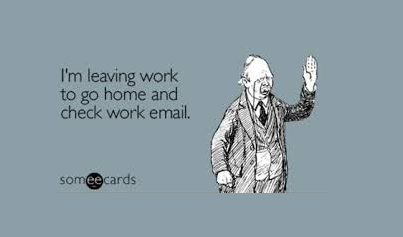
 Over half of my coaching clients claim they need more time and struggle to find the ‘balance’ to do the things that are important to them. When I ask the reasons behind their struggle, I hear “I don’t have time”, “I’m exhausted – I don’t have anything left” and “my workload is too much”. I also hear “next year it will be better” and “once this project finishes” and “we’re talking about hiring another staff member to help”. Guess what? I’ve heard it all before and actually I think I might have used one or two of these lines in the past. Here are the facts – it won’t change, unless you do.
Over half of my coaching clients claim they need more time and struggle to find the ‘balance’ to do the things that are important to them. When I ask the reasons behind their struggle, I hear “I don’t have time”, “I’m exhausted – I don’t have anything left” and “my workload is too much”. I also hear “next year it will be better” and “once this project finishes” and “we’re talking about hiring another staff member to help”. Guess what? I’ve heard it all before and actually I think I might have used one or two of these lines in the past. Here are the facts – it won’t change, unless you do.
The first time I really felt my priorities were out of whack, to a point where it wasn’t healthy, was in the first few years of building a business. The effort, time, brain space, heart and soul that goes in to getting something like that off the ground is significant. The ironic part is that the wheels can fall off when you take your eyes off the big picture – the whole point of creating something and working so hard in the first place.
There are signs. There always are. Skipping meals, not exercising, declining one too many invitations from friends to catch up, not sleeping (or in my case not being able to go back to sleep once awake), family making comments about your time away or not being ‘present’. Sometimes it goes beyond this and you see physical symptoms – I had a consultant who got so worked up before meetings, that she was suffering from anxiety and IBS.
Small steps are the key to turning it around.
1. Perspective – why are you doing this again? What’s the point? Where are you going? What’s the long-term vision? What are you trying to achieve? This is usually always a combination of career goals and life goals. Yet, when you look at the effort you are putting into those areas it can be very skewed.
2. The “perfect week plan” – if you could create the perfect week, what would it look like? What are the most important tasks that contribute the most to your weekly outcomes? Put them in your diary first. For example, I had all staff meetings on a Monday, Tuesday was planning, Wednesday and Thursday were client appointments and Friday was staff observation and coaching. Of course, things come up and you need to shuffle, but having a ‘pre-planned’ plan of attack can ensure that you are focusing on the important things first. Schedule exercise, put in the calendar dinner with parents – whatever it is, if it’s important, you need to make the time and not wait for it ‘to happen’. It won’t.
3. Empowerment – one client was telling me at the start of the meeting how he has no time and is so over-worked and then 30 minutes later he was telling me how he had to re-write an entire email his staff member wrote. Therein lies the problem. To get more time and reduce the volume of work – you need to delegate, train, coach and support those who work with you. I’ll let you in on a little secret – they actually do want to learn, they do want to do a good job and it might just be you holding them back from being brilliant.
4. Learn to say no – are you a people pleaser? A good friend of mine, has a terrible problem of saying yes to everything. She gets involved in every committee, school project, volunteering gig – you ask her, she just can’t say no. She likes to please. There’s nothing left – no time for the things she would really like to do because now she has a full calendar of doing things others want her do. Saying no is a great way to give yourself more time for the important things.
5. Control – one of my Consultants was always tired and complained about all the after hours calls and work she was doing. No one else seemed to have this problem and I couldn’t work out how she was in this situation – clearly very demanding clients! After listening and observing her conversations and interactions, I learnt pretty quickly that she was creating the expectation of always being available. She wasn’t setting boundaries in regards to the process, how she would communicate and when she would communicate. Creating expectations upfront in any relationship is a powerful way to ensure mutually satisfying behaviours for all involved.
6. Time for yourself – with 2 children under 6, running a business, clients, candidates, committees, speaking gigs, volunteering opportunities, a spouse, wider family and friends – I get it. It’s hard. If it were easy – we’d all be doing it. What do you do just for you? What makes you feel good? Hobbies – remember those things we used to do just for fun? If you’ve forgotten it might be time to sign up for that pottery class!
At a recent function, Professor Barbara Pocock told us that of 1,000 Australians surveyed over 7 years, showed that the work/life strain is very much alive and here to stay. It requires awareness, support, planning and leadership to help resolve these issues. Some of the survey results were alarming with more of us seeing our identity through our occupations than ever before and some people surveyed love their work so much that they said that their boss could “do anything” and they wouldn’t leave! Let’s leave that for another blog topic shall we……
Tell me – how do you achieve a healthy work/life blend? What strategies have been most successful for you?
